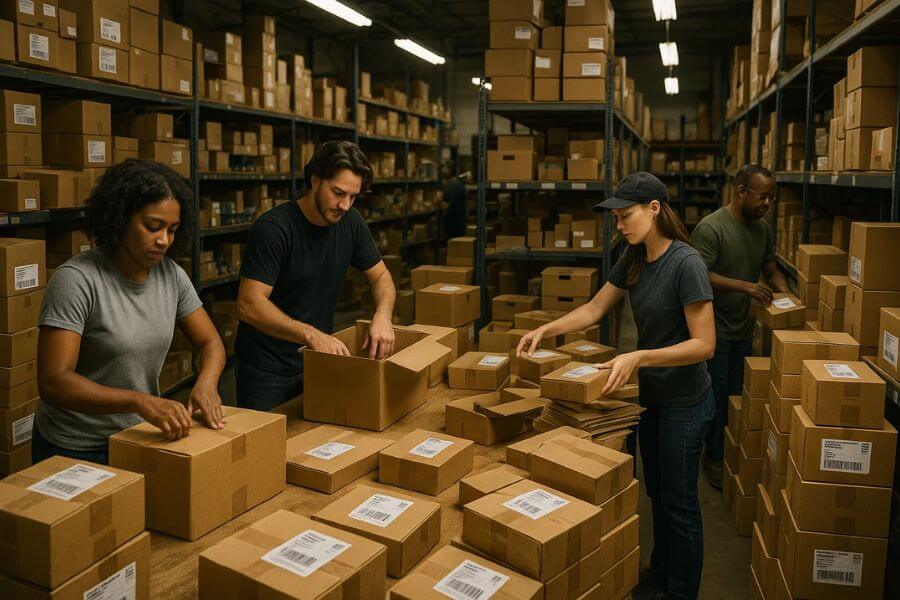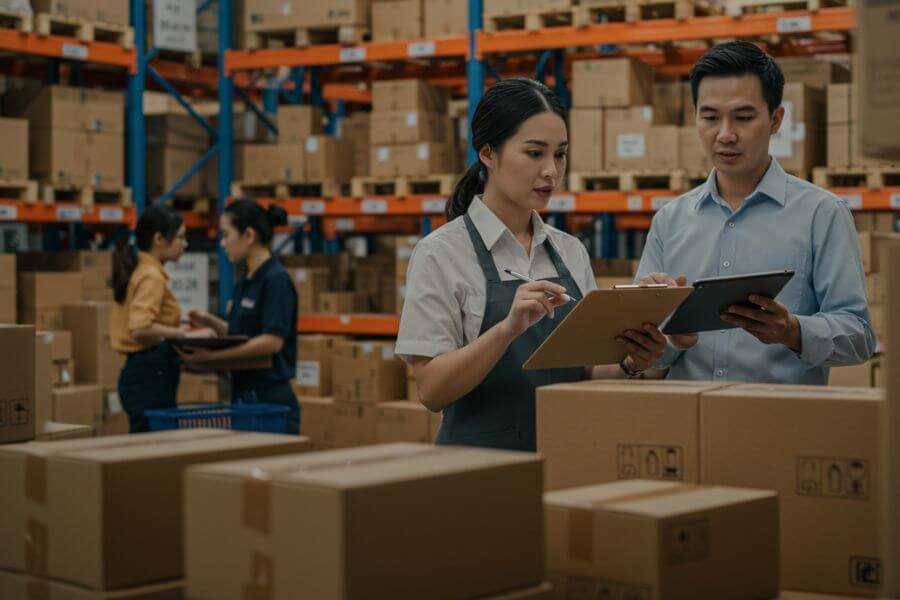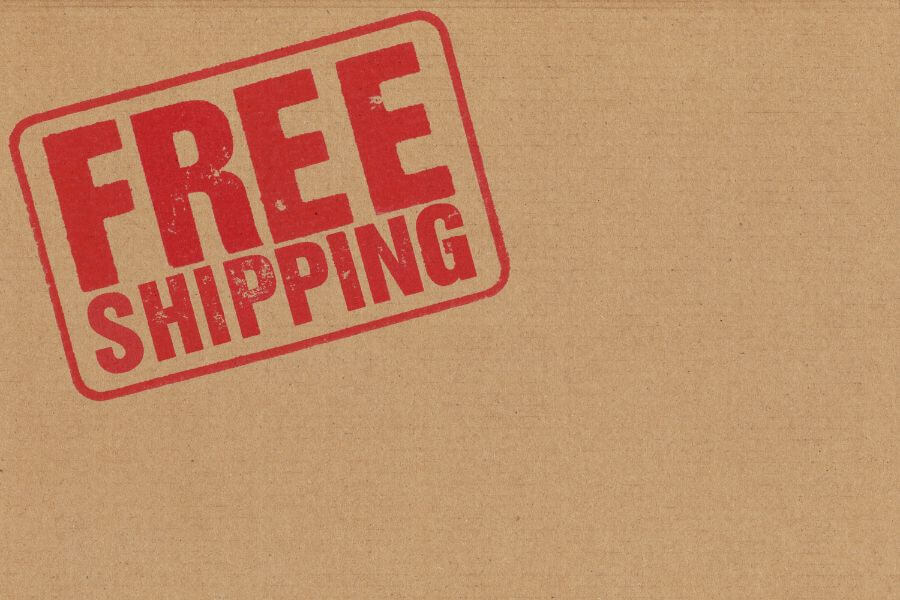As your ecommerce business grows, your fulfillment needs evolve. What worked during the early stages of your store, when operations were smaller and more manageable, may no longer be sustainable as you scale. In-house fulfillment, while a viable option for startups and smaller stores, can become a bottleneck as you expand, leading to inefficiencies, higher costs, and a decline in customer satisfaction.
In this article, we’ll explore the 10 signs that indicate your ecommerce store has outgrown in-house fulfillment and why outsourcing to a third-party logistics (3PL) provider could be the next logical step in your growth strategy.
1. Increased order volume is too much to handle
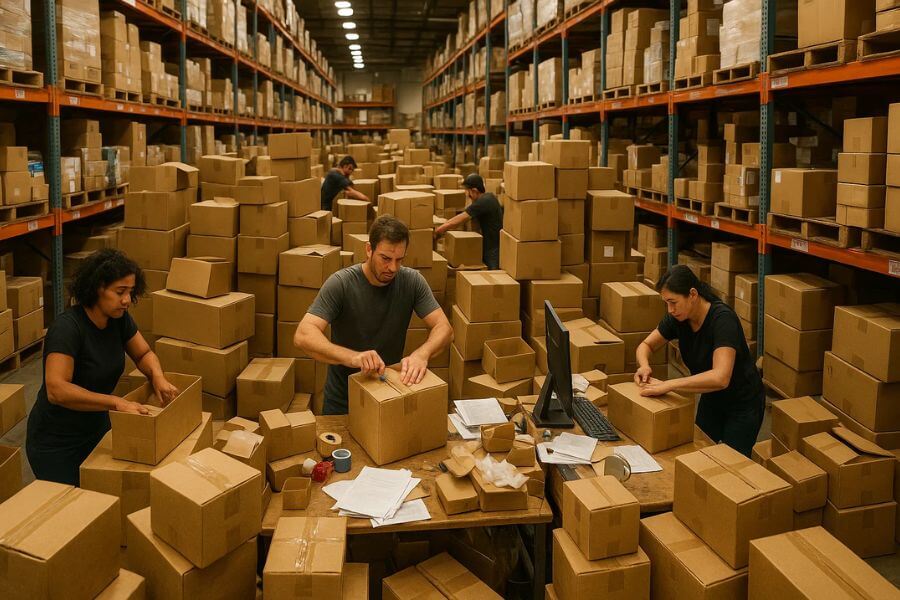
One of the most obvious signs that your ecommerce store has outgrown in-house fulfillment is the sheer volume of orders. As your business scales, fulfilling these orders in-house can quickly become overwhelming. When you were first starting, fulfilling a handful of orders a day was manageable, but now that number is steadily climbing, and it’s beginning to take up a significant portion of your day.
Processing, packing, and shipping orders require time, space, and manpower. The more orders you have to handle, the more resources you’ll need to devote to fulfillment, diverting attention from other critical aspects of running your business, like marketing, customer service, and product development. This increased workload can lead to costly mistakes, delayed shipments, and frustrated customers.
2. Order fulfillment costs are skyrocketing
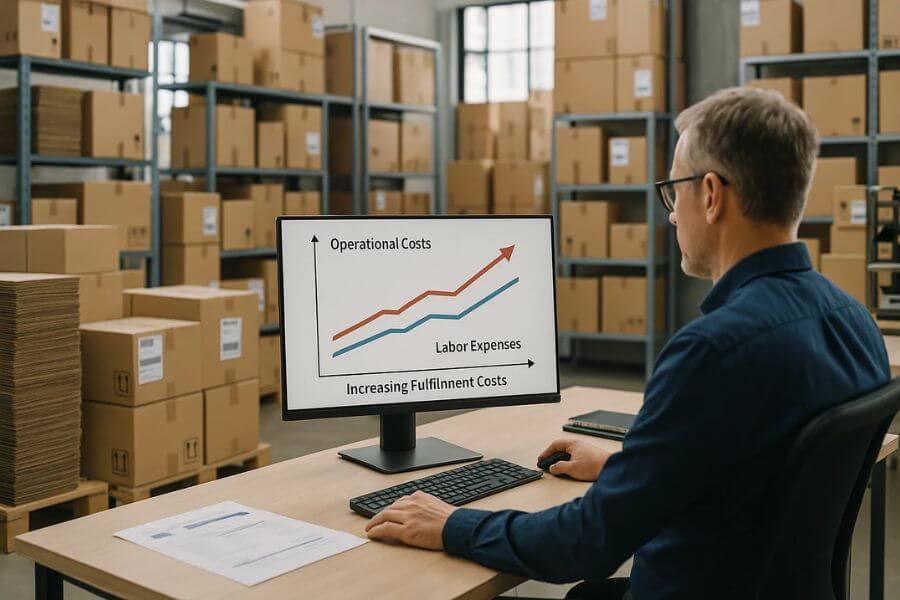
As your order volume increases, so do the costs of fulfilling those orders. Running an in-house fulfillment operation requires investing in warehouse space, packaging materials, labor, and shipping. While initially manageable, these costs can quickly become prohibitive as your business grows. In addition to fixed costs, like rent and utilities for your warehouse, you’ll also face increased variable costs, such as the need for additional employees to handle the surge in orders.
In-house fulfillment can also result in inefficiencies, like underutilized warehouse space or overstocking of inventory. These factors contribute to higher operational costs. Third-party logistics providers, on the other hand, have the economies of scale to help you lower fulfillment costs. They can negotiate better shipping rates, optimize warehouse space, and implement more efficient processes that would be hard to replicate in-house.
3. Inventory management becomes complex

Managing inventory in-house becomes increasingly complex as your ecommerce store grows. From tracking stock levels to managing multiple SKUs, ensuring that you always have the right amount of inventory on hand without overstocking or understocking can quickly become a logistical nightmare. Mismanaging inventory leads to out-of-stock situations, backorders, and lost sales.
Moreover, when your fulfillment process is in-house, you’re responsible for managing inventory across multiple sales channels, which can lead to discrepancies in stock levels. A 3PL provider, on the other hand, offers integrated inventory management systems that help sync stock levels across all your sales channels, ensuring that you never run into these issues.
4. The risk of order fulfillment mistakes increases
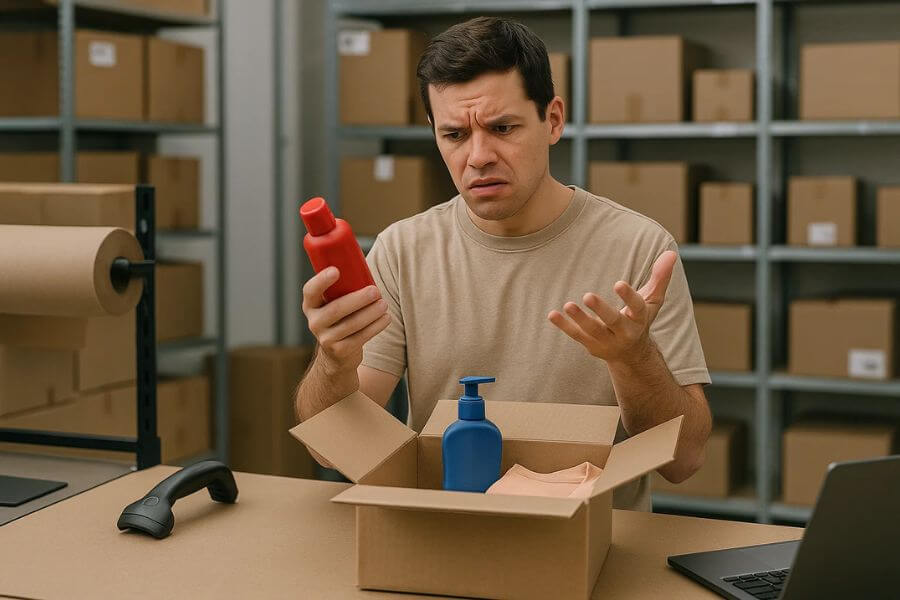
Order fulfillment mistakes, such as shipping the wrong product, delivering to the wrong address, or mispacking an order, can quickly damage your brand’s reputation and customer trust. These types of errors are inevitable when you have to handle fulfillment in-house, especially if you lack the necessary systems, processes, or manpower to manage the volume of orders efficiently.
When your fulfillment operations are stretched thin, human error is bound to occur, and these errors can lead to costly returns, refunds, and customer service complaints. 3PL providers have the expertise and technology in place to minimize mistakes, improving accuracy and reducing the risk of costly errors.
5. Shipping times are slower than your competitors
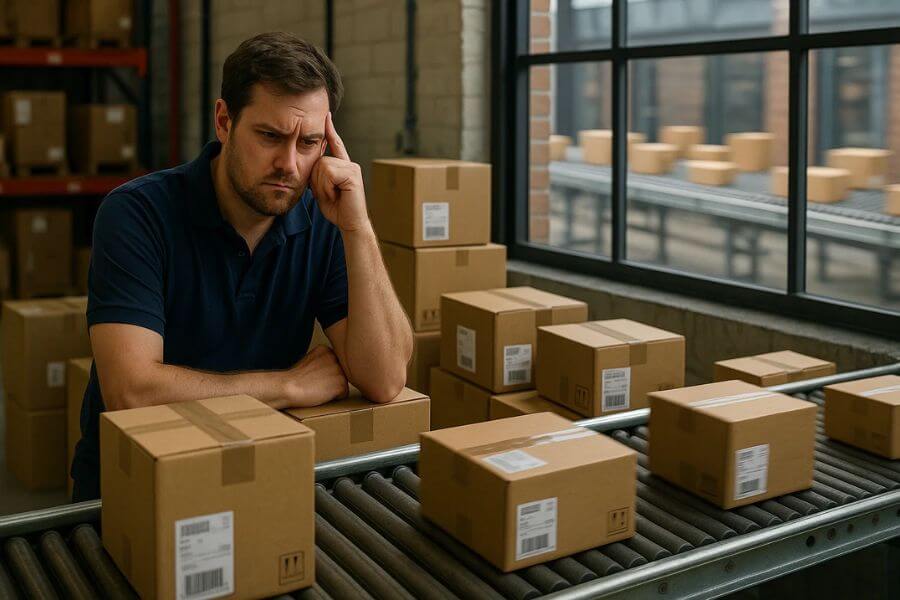
In the ecommerce world, speed is a key differentiator. Customers expect fast, reliable delivery, and your business may struggle to keep up with demand if you’re still handling fulfillment in-house. As your order volume grows, it becomes more difficult to ship orders quickly, especially if you’re relying on manual processes or outdated systems.
Additionally, if your warehouse is located far from major shipping hubs, it could result in longer shipping times and higher costs. Outsourcing to a 3PL provider with strategically located fulfillment centers can reduce shipping times and costs, improving the overall customer experience and helping you stay competitive.
6. Customer satisfaction is suffering
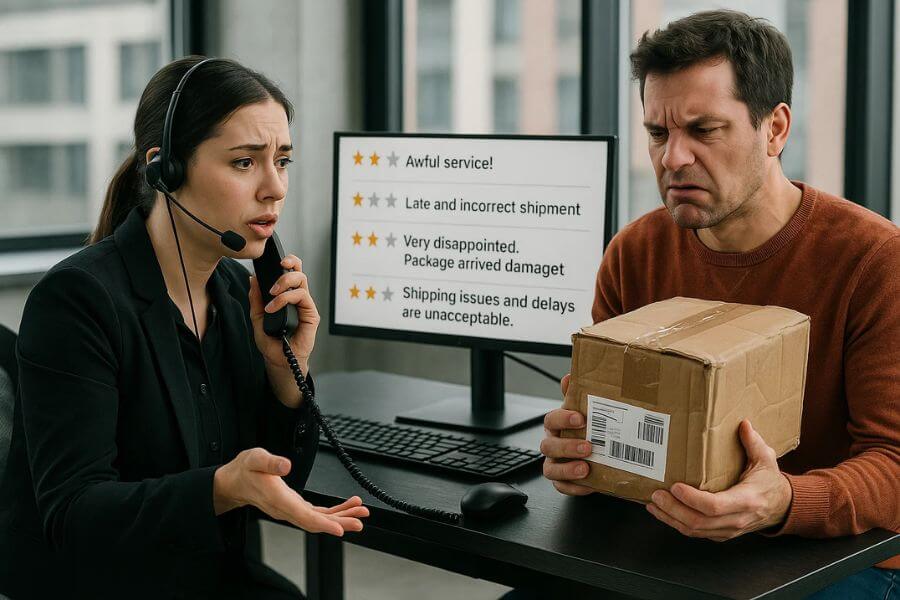
Your customers’ satisfaction is closely tied to your fulfillment process. Slow shipping times, inaccurate orders, or poor packaging can lead to negative reviews, increased returns, and lost customers. If you’re noticing a spike in customer complaints related to shipping issues, it’s a clear sign that your in-house fulfillment system may no longer be meeting customer expectations.
Outsourcing fulfillment to a 3PL provider who specializes in order processing and customer service can help you maintain a high level of satisfaction. With better technology, processes, and experience, they can help ensure that your customers receive their orders on time and in perfect condition, which translates into more repeat business and positive reviews.
7. Your staff is overworked and underperforming

As your order volume grows, you’ll need to hire more staff to keep up with demand. However, hiring more people isn’t always the solution. In-house fulfillment operations often require a high degree of manual labor, which can lead to staff burnout and decreased productivity.
Employees working long hours to meet order deadlines may experience fatigue, resulting in a drop in performance and a higher likelihood of mistakes. This can lead to inefficiencies in the order fulfillment process and higher turnover rates, all of which negatively impact your bottom line. By outsourcing to a 3PL, you can free up your staff to focus on more strategic tasks, such as growing your business, without worrying about the day-to-day operations of fulfillment.
8. You lack technology to scale efficiently
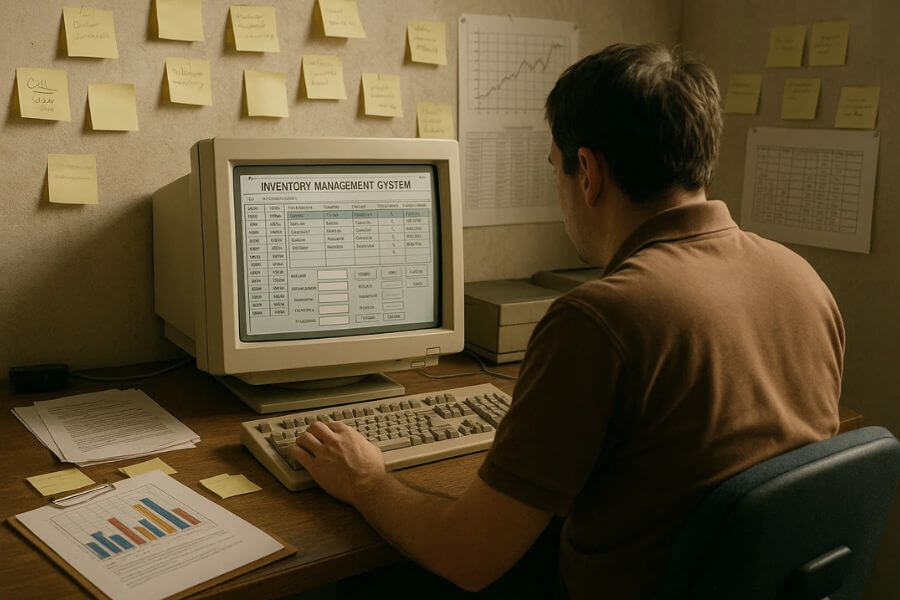
The technology needed to manage an in-house fulfillment operation is expensive and difficult to maintain. From inventory management software to order tracking systems, scaling your technology infrastructure as your business grows can be a daunting task.
Without the right technology in place, your fulfillment processes can become inefficient, leading to slow order processing times, inventory discrepancies, and difficulty tracking orders. 3PL providers typically use state-of-the-art technology and software that streamline the fulfillment process, offering real-time tracking, advanced reporting, and integrations with your ecommerce platform. By leveraging this technology, you can improve your fulfillment operations without having to invest in expensive systems yourself.
9. You're not able to offer international shipping

Expanding internationally is a natural step for growing ecommerce businesses. However, managing international shipping can be complicated, especially if you’re handling fulfillment in-house. Shipping costs, customs regulations, and local delivery carriers vary by country, making it difficult to provide a consistent international shipping experience for your customers.
A 3PL provider with a global network can help you expand your reach by handling international orders, optimizing shipping routes, and managing customs clearance. With their expertise in international logistics, they can help you offer faster, more affordable international shipping, allowing you to grow your customer base outside of your home country.
10. Your focus is shifting away from core business functions

When you first started your ecommerce store, you likely wore many hats, handling everything from sourcing products to managing orders and customer service. However, as your business grows, these tasks can become overwhelming, taking you away from the core functions that drive your business forward, such as marketing, product development, and customer engagement.
Handling fulfillment in-house requires a significant amount of time and energy, often diverting your attention away from strategic initiatives. By outsourcing fulfillment to a 3PL provider, you can focus on scaling your business and improving your customer experience, while leaving the logistics to the experts.
Conclusion
If your ecommerce store is experiencing any of these 10 signs, it may be time to seriously consider outsourcing your fulfillment to a third-party logistics (3PL) provider. Scaling your fulfillment operations can help you lower costs, improve efficiency, and provide a better overall experience for your customers. As your business continues to grow, having the right logistics partner in place can set you up for long-term success and give you the flexibility to focus on what truly matters—growing your brand.
Choosing to outsource fulfillment is not just about offloading work; it’s about finding a solution that will allow your business to thrive, operate more efficiently, and meet the increasing demands of your customers.

